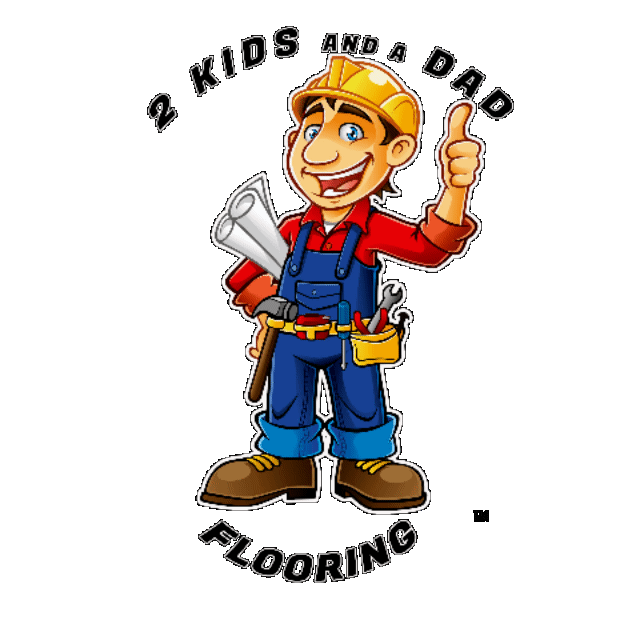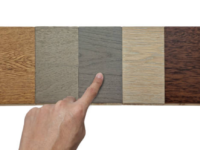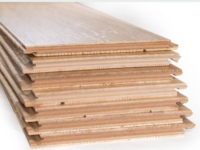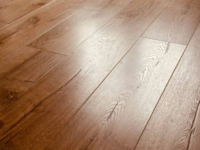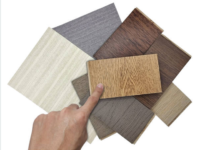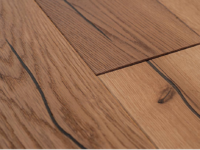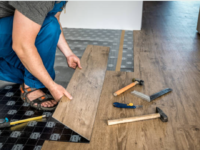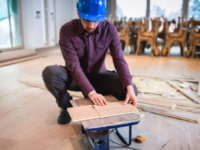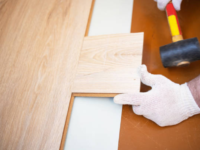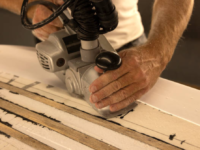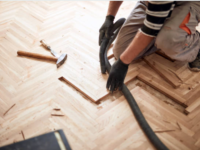Download Brochures
ENGINEERED WOOD FLOORING!🟫
Engineered wood flooring is a versatile and popular flooring option known for its durability, stability, and natural appearance. Here's some key information about engineered wood flooring:
Composition:
Engineered wood flooring is composed of multiple layers. The top layer, or wear layer, is made of real hardwood veneer, providing the natural beauty and texture of wood. Beneath the veneer are layers of plywood or high-density fiberboard (HDF) bonded together in a cross-grain construction for stability.
Durability:
Engineered wood flooring is highly durable and resistant to warping, cupping, and expansion/contraction due to changes in humidity and temperature. Its multi-layered construction provides stability, making it suitable for installation in areas where solid hardwood may not be recommended, such as basements or areas with fluctuating moisture levels.
Appearance:
Engineered wood flooring offers the authentic look and feel of hardwood, with a wide range of wood species, grain patterns, and finishes available. From traditional oak and maple to exotic species like acacia and Brazilian cherry, engineered wood flooring provides versatility in design options.
Installation:
Engineered wood flooring can be installed using various methods, including nail-down, glue-down, or floating floor installations. Floating floor installations, which involve interlocking planks that ``float`` over the subfloor, are popular for DIY projects and areas where moisture may be a concern.
Versatility:
Engineered wood flooring is suitable for installation in almost any room of the house, including living rooms, bedrooms, kitchens, and even bathrooms (with proper sealing). It can also be installed over various subfloor types, including concrete and plywood.
Maintenance:
Engineered wood flooring is relatively easy to clean and maintain. Regular sweeping or vacuuming, along with occasional damp mopping using a hardwood floor cleaner, helps keep the surface free of dirt and debris. It's essential to wipe up spills promptly to prevent water damage to the wood veneer.
Cost Considerations:
While engineered wood flooring may have a higher upfront cost than laminate or vinyl flooring, it is generally more affordable than solid hardwood flooring. Its durability, stability, and natural appearance make it a cost-effective investment for homeowners seeking the beauty of hardwood without the premium price tag.
Longevity:
With proper care and maintenance, engineered wood flooring can last for many years. The thickness of the hardwood veneer and quality of the construction will influence the longevity of the flooring. Higher-quality engineered wood flooring may be refinished multiple times, extending its lifespan.
Environmental Considerations:
Engineered wood flooring is considered a sustainable choice, as it uses less hardwood than solid wood flooring. Additionally, the use of plywood or HDF as the core material reduces waste and maximizes the use of resources.
Engineered wood flooring's combination of durability, stability, versatility, and natural beauty makes it a popular choice for homeowners and designers alike. Whether you're renovating a traditional home or designing a modern space, engineered wood flooring offers the timeless elegance of hardwood with added durability and practicality.
ENGINEERED WOOD FLOORING!🟫
We are here for all of your FLOORING needs 24/7/365.

